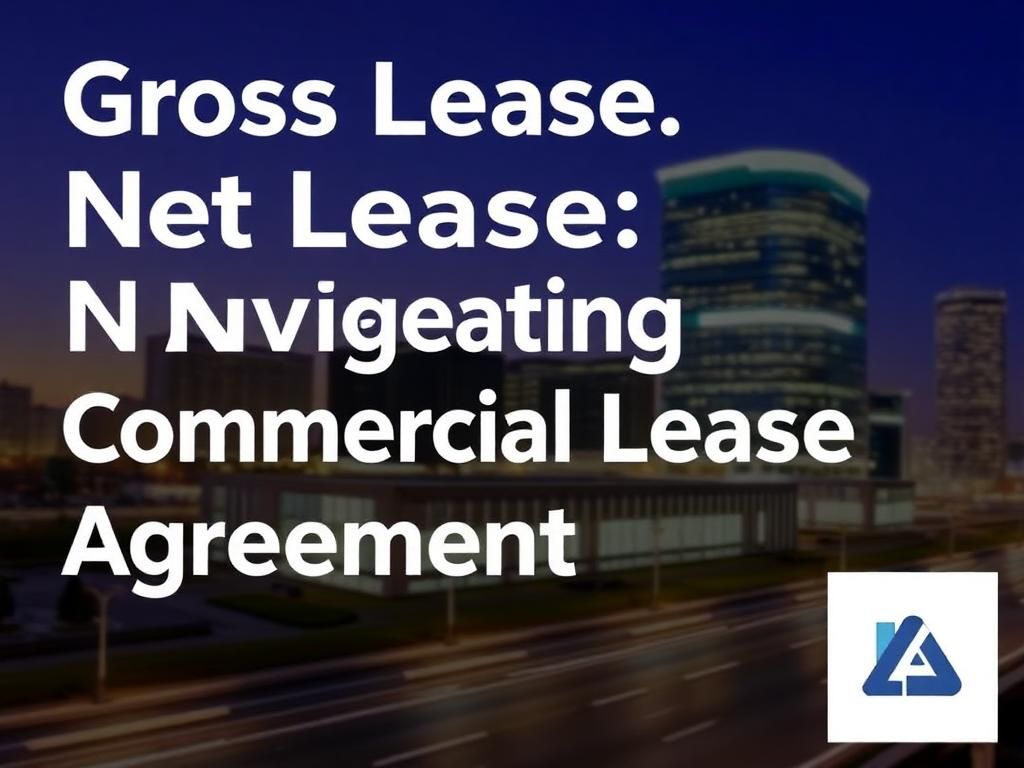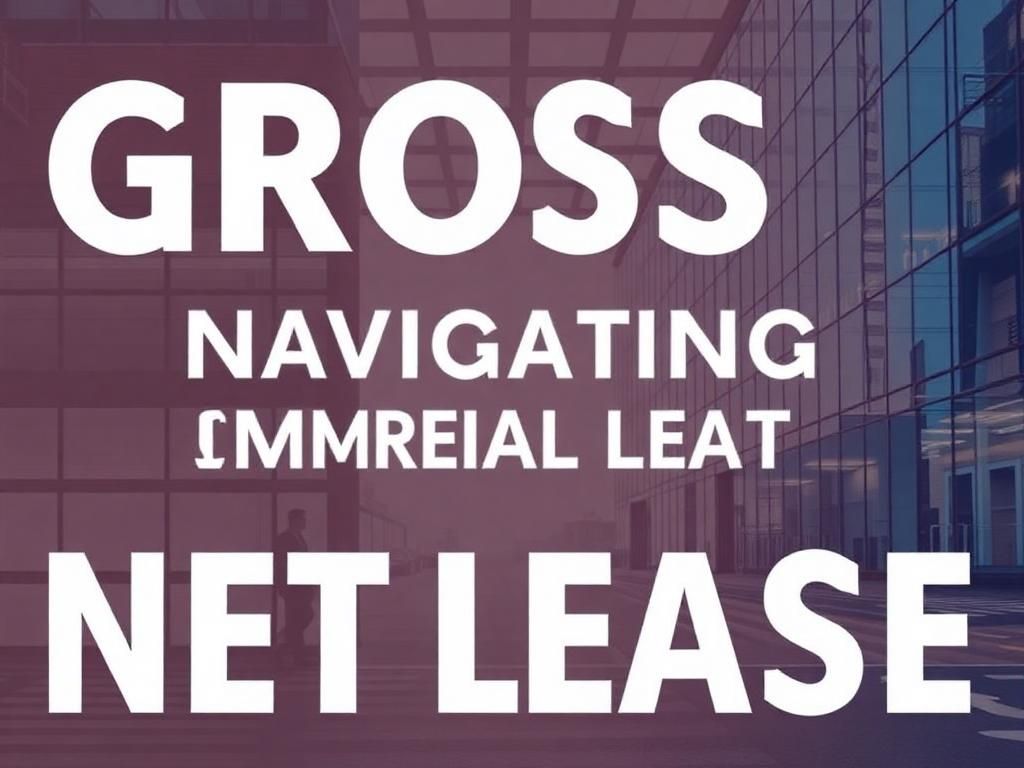Understanding lease agreements is a fundamental aspect for both landlords and tenants in the realm of commercial real estate. With various types of leases available, it is essential to recognize their differences, especially when discussing gross lease vs net lease. These lease types can significantly influence financial planning and operational responsibilities, making it crucial for stakeholders to grasp their implications fully.
A gross lease typically combines rent and additional costs into a single payment, while a net lease breaks down those costs into separate responsibilities. This article will delve into the critical aspects of these lease types, exploring their definitions, key features, advantages, disadvantages, and practical implications for tenants and landlords alike.
What is a Gross Lease?
Definition
A gross lease in commercial real estate means that the tenant pays a set rental amount, which covers various operational costs associated with the property. This could include property taxes, insurance, and maintenance expenses. Such leases are particularly common in office buildings and multifamily residential complexes, providing an appealing option for businesses desiring simplicity in managing their expenses.
Key Features
- All-Inclusive Rent Payments: In a gross lease, the rent payment is inclusive of several operational costs. This means tenants do not have to worry about separate bills for property taxes, insurance, or maintenance.
- Stability in Monthly Costs: Tenants enjoy the benefit of consistent rent amounts, allowing for easier budgeting and financial predictability.
- Simple Lease Management: For landlords, a gross lease minimizes the complexity of managing multiple expenses, as most operational costs are encapsulated within the rent.
Advantages of Gross Leases
The appeal of a gross lease lies in its numerous benefits for both tenants and landlords.
Tenant Benefits:
- Predictable Budgeting: Knowing the total monthly payment helps tenants manage their finances effectively without unexpected charges.
- Fewer Responsibilities: Tenants are exempt from concerns about maintenance and utility costs, which creates less hassle for them.
Landlord Benefits:
- Lower Management Effort: Landlords can focus on property management without constantly tracking various operational expenses.
Disadvantages of Gross Leases
As with most agreements, gross leases come with certain drawbacks.
- Potentially Higher Base Rent: Given the inclusion of multiple expenses in the rent, the base rent might be higher than in net leases.
- Less Incentive for Resource Conservation: Since tenants are not directly responsible for many operational costs, they may lack the motivation to conserve resources or diligently maintain the property.

What is a Net Lease?
Definition
A net lease is a lease agreement where the tenant takes on additional financial responsibilities, typically beyond just paying rent. There are several variations, including single net, double net, and triple net leases, commonly utilized in sectors such as retail and industrial properties.
Types of Net Leases
- Single Net Lease: In this arrangement, the tenant pays rent plus property taxes. This provides a straightforward structure but shifts some financial burdens onto the tenant.
- Double Net Lease: Here, tenants are responsible for rent, property taxes, and insurance, sharing more costs with the landlord.
- Triple Net Lease: This type requires tenants to cover rent, property taxes, insurance, and all maintenance costs, giving them significant involvement in property upkeep.
Key Features
- Variable Costs: Tenants face fluctuating costs, depending on the building’s operational expenses, which can complicate budgeting.
- Higher Tenant Involvement: With more responsibilities, tenants are generally more invested in the condition and maintenance of the property.
Advantages of Net Leases
The advantages of net leases can be appealing for both tenants and landlords.
Tenant Benefits:
- Lower Base Rent: Since operational costs are shared with tenants, the initial rent may be more affordable than in a gross lease.
- Potential Savings: Tenants can strategically manage costs and find savings on operational expenses.
- Incentives for Property Maintenance: With property upkeep on their shoulders, tenants often take a proactive approach to maintaining facilities.
Landlord Benefits:
- Reduced Financial Risk: With tenants covering most, if not all, operational costs, landlords may face less financial variability.
Disadvantages of Net Leases
Despite the benefits, net leases also have certain challenges.
- Unpredictable Monthly Expenses: Tenants may face unexpected costs, making budgeting more complex.
- Complex Agreements: Net leases can involve intricate clauses and responsibilities, which may complicate negotiation processes.
- Increased Management Responsibilities: Tenants must be prepared to manage various operational aspects, which may require additional resources and effort.

Rent Structure Comparisons
Cost Implications
When considering the gross lease vs net lease debate, cost implications become a significant factor. The rent structure in each lease type affects both parties differently over time. Analyzing the long-term financial impacts is vital for a well-rounded understanding of which lease type may fare better for specific situations.
Responsibilities
The division of responsibilities between landlords and tenants is a crucial topic. This can significantly differ in gross and net leases. While gross leases generally transfer maintenance and operational expenses to the landlord, net leases require tenants to take on these responsibilities, leading to different management strategies.
Situational Considerations
Choosing the Right Lease Type
Determining the most suitable lease structure often depends on various factors, including:
- Location: Properties in urban areas may lean toward gross leases due to their convenience, while suburban or rural properties could favor net leases.
- Size of Business: Smaller businesses might prefer the predictability of a gross lease, whereas larger organizations may be better equipped to handle the complexities of net leases.
- Industry: Certain industries thrive under specific lease arrangements. For example, a retail business may benefit from a triple net lease as they intend to manage their space actively.
Market conditions and property types also profoundly impact lease choices, as fluctuating economic environments can influence demand for specific lease structures.
Industry Practices
Specific sectors exhibit varied practices concerning leasing arrangements.
| Industry | Common Lease Type | Reasoning |
|---|---|---|
| Retail | Net Lease | Higher tenant control over property maintenance and utilities. |
| Office | Gross Lease | Simplifies billing and expense management for tenants. |
| Industrial | Triple Net Lease | Encourages tenant responsibility for expenses directly related to operations. |
Conclusion
In examining the gross lease vs net lease debate, both lease types offer unique advantages and challenges. It is crucial for both landlords and tenants to align their lease choices with their business strategy and financial planning. Consulting with real estate professionals can provide tailored advice, ensuring stakeholders make informed decisions that suit their specific needs.
Additional Resources
Further Reading
For those looking to dive deeper into leasing strategies, consider exploring articles from reputable sources like [The Balance Small Business](https://www.thebalancesmb.com) or [BiggerPockets](https://www.biggerpockets.com).
Professional Consultation
Engaging real estate lawyers or agents is advisable to navigate the complexities of lease agreements. Understanding local laws and market conditions can dramatically affect the outcomes related to lease agreements.
FAQs
- What is the main difference between a gross lease and a net lease? A gross lease bundles all operational costs into one monthly payment, while a net lease separates those costs, placing more responsibility on the tenant.
- What are some common industries that use net leases? Retail and industrial sectors often utilize net leases for better cost management.
- Are gross leases typically more expensive? Yes, gross leases can have higher base rents due to included expenses compared to net leases.
- How do I choose between a gross lease and a net lease? Factors to consider include your budget, the size and type of your business, and the local real estate market conditions.
- Can I negotiate lease terms? Yes, tenants can negotiate specific lease terms, whether gross or net, to tailor the agreement to their needs.
- What is a triple net lease? A triple net lease requires tenants to cover rent, property taxes, insurance, and all maintenance costs.